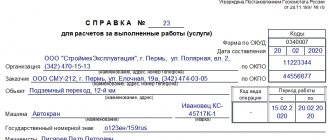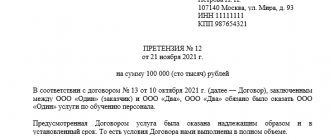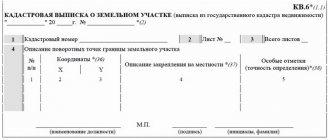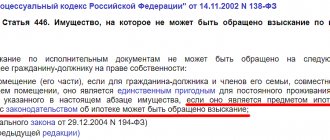When does the transition take place?
The fee for handling solid waste is included in the payment for utilities, and not in the fee for the maintenance of residential premises (Part 4 of Article 154 of the Housing Code of the Russian Federation). The obligation to pay for the utility service for the management of MSW occurs if there is an agreement concluded between the executive authority of the relevant constituent entity of the Russian Federation and the regional operator and a unified tariff for the service for the management of MSW approved at the regional level, but no later than 01/01/2019. This is the requirement of Part 8 of Art. 23 of the Federal Law of December 29, 2014 No. 458-FZ.
For some regions, the period for transition to a new MSW management system has been extended by Federal Law No. 483-FZ dated December 25, 2018. Thus, the federal cities of Moscow, St. Petersburg and Sevastopol have the right to delay the transition until 01/01/2022. Until 01/01/2020, subjects of the Russian Federation in one or more areas of activity of a regional operator in which such an operator does not exist may postpone the transition. In these regions, fees for utility services for the management of solid waste are charged as part of the fee for maintaining residential premises.
When the fee for handling MSW is initially included in the payment for utility services, the cost of services for the collection, removal, disposal (disposal) of waste is excluded from the payment for the maintenance of residential premises starting from the month in which the regional operator begins to provide services for handling MSW.
For such a change in the amount of payment for the maintenance of residential premises, there is no need to hold a general meeting of owners of premises in the apartment building. However, it is important that management companies, homeowners' associations, residential complexes, and other specialized consumer cooperatives are required to notify the owners of premises in the building about a change in the amount of payment for the maintenance of residential premises no later than 10 days from the date of the start of providing municipal services for the management of solid waste. In addition, at the request of the owner, the management organization (HOA) is obliged to submit documents confirming this fact, including documents justifying the calculation of the fee (Part 8.1, Article 23 of Federal Law No. 458-FZ). Conclusion
The transition to a new MSW management system assumes that MSW management will be carried out under agreements with regional operators. In the constituent entities of the Russian Federation where such a transition has been made, persons managing apartment buildings are required to exclude from the amount of payment for the maintenance of residential premises the cost of services for the collection, removal, disposal (disposal) of waste without a decision of the general meeting of owners, starting from the month in which the service begins to be provided regional operator.
Who should pay for the removal of construction waste from apartments in an apartment building?
In Russia, the majority of apartments in new apartment buildings are handed over by construction organizations (developers) in a condition unsuitable for living, without any finishing, so people who purchase such apartments are forced to complete cosmetic repairs in them in order to bring these apartments to normal residential conditions. fortune, while also investing considerable additional money into it. During such finishing and cosmetic renovations of apartments, a certain amount of waste is generated, consisting of the remains of various finishing materials. This circumstance has become fertile ground for fraud and deception on the part of unscrupulous employees of almost all management organizations that are involved in the maintenance and management of apartment buildings. Especially in houses - new buildings that have recently been put into operation. To do this, they came up with a simple scheme to deceive apartment owners, which could not have been implemented without the complicity of local officials and judges.
Scheme of deceiving apartment owners during garbage collection
Unscrupulous employees of management organizations began to call household waste, consisting of the remnants of various finishing materials, “construction waste” and began to force all owners of apartments in new buildings to pay them considerable additional money for the removal of such supposedly “construction waste.” In fact, this is blatant deception and manipulation on the part of management organizations. Such waste is not “construction waste” and belongs to the category of ordinary household waste, the removal of which is already paid by apartment owners as part of current utility bills.
The current legislation on this topic is formulated as follows: “Waste from routine repairs in apartments is not classified as construction waste, and must be removed by the operator as solid municipal waste as part of the already existing tariff for communal services of apartments. Therefore, no additional paid services are required for the removal of waste, which is generated from renovations in apartments, including new buildings, and is in fact not construction waste, but ordinary household waste.”
PHOTO (construction waste does not exist)
In this primitive deception scheme, the money stolen from apartment owners for allegedly removing non-existent “construction waste” is immediately laundered by management organizations into the pockets of their unscrupulous employees. Some of this stolen money, of course, goes to bribes to various government officials, whose powers include the responsibility to identify and suppress precisely such illegal activities of management organizations. But the most unfortunate thing is that corrupt judges are also involved in this corruption scheme on the side of unscrupulous management organizations. They, breaking the law, will always make their deliberately unjust decisions in favor of these unscrupulous management organizations, if suddenly one of the apartment owners realizes that he was deceived and tries to get his money back through the court. Therefore, the need for a professional legal analysis on this topic with references to regulations has long been overdue.
Let's start with the terms and concepts on this topic.
Construction waste is waste that is generated during the construction activities of construction and repair organizations that have the appropriate licenses to perform such work. Construction waste is divided into 5 (five) categories according to the degree of danger and negative impact on the environment. (Order No. 511 of June 15, 2001 of the Ministry of Natural Resources of the Russian Federation)
Municipal solid waste (MSW) is waste that is generated in residential premises when used by individuals for domestic consumer purposes. As well as goods that have lost their consumer properties during their use by individuals in residential premises to satisfy personal and household needs. Municipal solid waste also includes waste generated during the activities of legal entities, individual entrepreneurs and similar in composition to waste generated in residential premises during consumption by individuals.
Bulky household waste (BWW) is solid municipal waste (furniture, household appliances, waste from routine repairs of residential premises, etc.), the size of which does not allow for its storage in containers.
Unscrupulous employees of management organizations are well aware that the remnants of finishing materials that are formed during cosmetic and routine repairs of apartments are in fact ordinary household waste, which by law are classified as Municipal Solid Waste (MSW) and Bulky Household Waste (BWW), and not is "construction waste". But they are too tempted to receive (and actually steal) additional money from apartment owners without bearing any responsibility for this crime. Moreover, ordinary citizens are not too interested in the nuances of legislation and are always lazy in defending their legal rights. This is what scammers take advantage of. Calling the remains of finishing materials “construction waste” , they demand in an ultimatum, very harsh form, sometimes with threats, that apartment owners pay extra for its removal. And most people pay because they really fear for their safety. In fact, the remains of finishing materials do not belong to the category of construction waste and are ordinary household waste. Their removal and disposal is already paid for by the owners in the monthly payments for utility services of their apartments, as part of the current tariff. Therefore, the removal of remnants of finishing materials under the guise of “construction waste” is actually a fake, that is, a deception. And demanding additional payment for such fake services is illegal and is essentially theft of money from apartment owners.
This type of fraud by management organizations became possible because many apartment owners do not have proper knowledge in this area and do not understand the difference between construction waste and ordinary household waste. The impudence with which unscrupulous managers and employees of management organizations act under the guise of corrupt judges and government officials, of course, instills considerable fear in the minds of apartment owners, so most of them pay these swindlers without complaint.
The law on the topic of garbage removal from apartments in apartment buildings says this:
The relationship between apartment owners and management organizations, their mutual rights and obligations, is determined by the Management Agreement, the terms of which are regulated by the Civil and Housing Codes, as well as a number of regulations in the field of housing and communal services. The list of mandatory utilities in the management agreement for apartment owners is strictly defined by Article 154 of the Housing Code of the Russian Federation . These services are mandatory and it is unlikely that it will be possible to exclude any of them from the management agreement. On the other hand, according to the law, no additional paid services can and should not be included in the Management Agreement as mandatory services. According to the legislation on the Protection of Consumer Rights ( Federal Law 2300-1 of 02/07/1997 ), it is unacceptable and illegal to impose any additional services beyond those specified by law or contract. All conditions for additional services for an additional fee , in addition to those defined in Article 154 of the Housing Code of the Russian Federation for communal services of apartments, if they were included in the Management Agreement, are obviously illegal , that is, initially these conditions are not considered valid. Such conditions on additional services cannot be included in the Management Agreement either by law or by common sense. Known illegality does not need to be specifically proven in the courts. Therefore, the favorite assertion of all scammers from housing and communal services, that you definitely need to go to court to try to prove the illegality of these obviously illegal conditions in your management agreement, is absolutely unfounded.
And many people, out of ignorance, fall for this deception and foolishly go to the courts, which have long been corrupted by these scammers from the housing and communal services sector. Naturally, corrupt judges always make and will continue to make all their obviously illegal decisions on this topic in favor of unscrupulous management organizations. As a typical example on this topic, we can cite one of the cases in which judges Malakhova E.B. and Sorokina V.N. made their decisions contrary to the norms of the law and the explanations of the State Housing Property Inspectorate and other government organizations that supervise the housing and communal services sector. Any apartment owner has the right not to enter into any additional, separate agreements, including for payment and (or) removal of “construction waste” that does not exist. And you have the right not to pay for supposedly additional services for the removal of ordinary household waste under the guise of “construction waste,” even if they were already supposedly provided to you. Moreover, there is not and cannot be any “construction waste” in your apartment. The law is on your side in this case.
Well, if it suddenly happened that you, out of ignorance, have already given your money to these swindlers from the management organization, feel free to demand your money back. In this case, the law is also on your side. (See photo 2. GZHI’s response about the illegality of additional services) However, you should take into account that corrupt courts will always make their decisions against you in favor of management organizations.
So don’t rush to immediately go to corrupt courts. First, write complaints to all possible authorities, including the prosecutor's office, which are responsible for control and supervision in the provision of housing and communal services. Better yet, never rush to give your money to any scammers from management organizations, even if they put pressure on you or threaten you.
An important point should be noted here. If an apartment building has been officially put into operation and a management organization has begun to service it, and real construction waste is suddenly discovered in it, which was left or hidden by the developer, the developer or the management organization that accepted the building for operation is obliged to remove and dispose of this construction waste. Moreover, they must do this at their own expense. And none of them has any right to shift the burden of these expenses onto the owners of apartments in this building. According to Article 1 of the Federal Law of June 24, 1998 No. 89-FZ “On Production and Consumption Waste” (hereinafter Law No. 89-FZ): “Municipal solid waste (MSW) includes waste generated in residential premises during consumption by individuals , as well as goods that have lost their consumer properties during their use by individuals in residential premises to satisfy personal and household needs. Solid municipal waste also includes waste generated during the activities of legal entities, individual entrepreneurs and similar in composition to waste generated in residential premises during consumption by individuals.”
According to paragraph 2 of the Rules for the management of municipal solid waste (MSW), approved by Decree of the Government of the Russian Federation dated November 12, 2016 No. 1156 (hereinafter referred to as Rules No. 1156), “Bulky waste - solid municipal waste (furniture, household appliances, waste from routine repairs of residential premises, etc.), the size of which does not allow them to be stored in containers.” There is also GOST R56195-2014 National Standard of the Russian Federation. “Housing and communal services and management of apartment buildings. Maintenance services for the local area, collection and removal of household waste. General requirements". It states that: “bulk waste – production and consumption waste, which are items that have lost their consumer properties (furniture, household appliances, bicycles and other large items), the dimensions of which exceed 0.5 meters in height, width or length (clause 3.3)."
According to the Russian Ministry of Construction and the Russian Ministry of Natural Resources , “Waste from routine repairs of residential premises (linoleum waste, frames, door frames, etc.) is classified as bulky waste and is subject to removal by a regional operator within the established uniform tariff for MSW management services.” (Letter of the Ministry of Construction of Russia dated September 25, 2018 N43298-OG/06. Letter of the Ministry of Natural Resources of Russia dated October 11, 2019 N 08-25-53/24802 “On sending clarifications on the issue of regulating activities in the field of solid waste management”). The same letters explain that bulky waste must be taken into account as part of MSW when determining standards in the manner prescribed by current legislation. From these regulations of the Russian Federation it follows that:
Garbage that is generated during routine renovations of residential premises (linoleum waste, frames, door frames and other remnants of finishing materials) is classified as household bulk waste, and not as “construction waste”. In accordance with the legislation, such waste is subject to removal by a regional operator, including at the request of consumers, within the framework of the already established and paid uniform tariff for the service for the management of household waste as part of payments for utility services of apartments. Household waste that is not actually “construction” must be removed without charging additional fees to apartment owners.
Management agreements concluded between apartment owners and management organizations should not contain any conditions for the provision of additional services or payment for such additional services. Moreover, any “construction waste” does not exist and cannot be in the possession of the owners of the apartments during their normal use, and even during any repair and finishing work in these apartments.
This is a primitively simple scheme according to which many management organizations receive additional money from apartment owners in new apartment buildings for the removal of ordinary household waste under the guise of “construction waste.” Unfortunately, the State Housing Inspectorate of the Moscow Region, even based on collective statements from citizens, does not want to investigate such, too simple schemes for stealing money from apartment owners in new buildings.
Below is a photocopy of the response of the State Housing Inspectorate of the Moscow Region dated December 3, 2020, stating that officials of this inspection will not take any measures against the Managing Organization of Municipal Unitary Enterprise SEZ to suppress their illegal activities according to the scheme described above.
(Why do these officials get paid???)
All material on the topic “Who should pay for the removal of construction waste from apartments in apartment buildings”
- Part One (The Beginning of the Story)
- Part two (Objections of the defendant) https://zakon.ru/blog/2020/7/22/prostaya_zadachka_nachalnogo_urovnya_pro_zhkh_kotoraya_ne_pod_silu_professionalnym_yuristam_ch2_%C2%A0pro
- Part three (Who should pay for the removal of construction waste from apartments in apartment buildings)
Reducing the amount of payment for the maintenance of residential premises is the responsibility of the manager
Current legislation obliges the person involved in managing the house to change the amount of payment for the maintenance of residential premises (unilaterally, without a decision of the general meeting of owners) in the billing month in which the regional operator begins to provide utility services for the management of solid waste. The Ministry of Construction in Letter No. 8146ME/06 dated March 11, 2019 emphasized that persons managing apartment buildings are obliged to strictly comply with the provisions of Part 8.1 of Art. 23 of Federal Law No. 458-FZ.
Example
A regional MSW management operator has been providing the corresponding service since 01/01/2019.In this case, the amount of the fee for the maintenance of residential premises had to be reduced by excluding from its composition the cost of the service for handling MSW from 01/01/2019, which should have been reflected in the payment documents for January 2021 (the fee for the utility service for handling MSW is reflected on a separate line).
If the payment document indicates the fee for handling MSW as a separate line without excluding the corresponding payment from the fee for the maintenance of residential premises, the management organization will allow double charging for the same service (example - Resolution of the AS SZZ dated 06/11/2019 No. F07-3995 /2019 in case No. A44-7639/2018).
Basic rules for waste removal from individual households
Any citizen living in a country house regularly generates waste. The problem of garbage disposal arises automatically. There are two ways to solve this
The first and main thing is to enter into an agreement for the collection and removal of waste with a specialized company.
The second is to deal with recycling yourself. The variant mainly applies to areas very remote from cities. For example, in settlements under construction, sometimes the construction of infrastructure facilities lags behind the construction of housing. Accordingly, in the locality there are no self-government bodies ready to take responsibility for waste removal. In this case, responsibility for the condition of the house plot and surrounding area rests with the owners of individual housing construction.
How is payment calculated?
According to established requirements, an agreement on the provision of services for the removal of MSW and other types of waste between the regional operator and the owner of the house is drawn up on the basis of a document confirming ownership of real estate.
This is a must. It is impossible to sign an agreement without a certificate or extract, and its absence is fraught with fines.
In Russia, there are three methods of calculating payment for waste removal services:
- By area of the house: according to the tariffs established in the region for 1 m2 of area;
- By the number of residents;
- By volume of garbage.
According to the first option, payment is calculated in the following constituent entities of the Russian Federation:
- Moscow region;
- Leningrad region.;
- Tyumen region;
- Amur region;
- Irkutsk region;
- Perm region;
- Moscow
- Saint Petersburg.
| Calculation formula: amount payable = S x tariff |
In other regions, the cost of garbage removal for 1 person is taken as a basis.
The third block of tariffs concerns individual housing construction, in which garbage is removed as it is generated. The price tag per cubic meter or other calculated measure is taken as a basis and multiplied by their quantity.
You can find out the tariff currently in force in your region or region from your regional operator by phone or on the website.
Examples - how the cost of garbage removal in the Moscow region is determined (remember that in the region and in the city itself the area of the house is taken as a unit of calculation):
- The tariff for apartment buildings is approximately 8 rubles/m2;
- For gardening non-profit partnerships: when calculating, a 50% seasonal discount is applied, which does not allow amounts to be raised above 65 rubles;
- For residents of private houses: a 30% discount is applied, and also limit indices are used so that the total amount payable does not exceed the established “ceiling”.
Limits for payment for waste removal services:
| House area | Price |
| No more than 100 m2 | Up to 200 rubles |
| 100-150 m2 | Up to 400 rub. |
| 140-200 m2 | 450 rub. |
| The house is located two kilometers from the landfill or closer | 70% discount |
Payment for services for summer residents
Staying at the dacha is often seasonal. Most city residents leave the city in June and return in August. The rest of the time the houses are empty. It is logical that if garbage is generated during this period, it is not associated with human activity, but is in the form of fallen leaves and branches.
Also, in individual housing construction there are residents who often go on business trips, leaving home for a long time for other reasons. In both cases, the law allows you to pay for garbage removal services specifically for the period of residence in the house. To do this, you need to contact the management company of the building in which your apartment is located and get a certificate stating that while you were away from the country or out of town, you regularly paid for housing and communal services. Muscovites provide such a certificate to Mosenergosbyt. Based on the document, they will recalculate you.
The norm does not apply to SNT participants, because the seasonal discount is already “built into” the tariff.
The procedure for collecting and removing garbage
The garbage disposal method that is relevant for an apartment building is not always suitable for use in the private sector. There are three waste collection schemes:
| Collection scheme | Features in relation to individual housing construction |
| Waste is collected in containers installed in a specially designated area | Cons: it is impossible to control who throws out garbage, so even those who do not pay for the services use the containers. Payments will increase, since the tariff will have to include site cleaning work (there are no janitors in the private sector) and the purchase of containers |
| Homeowners buy plastic bins themselves and store garbage in places close to the roadway | A homeowner purchases a personal container and places it along the road. Disadvantage: additional costs, high probability that the container will be stolen |
| Batch collection: garbage is packed into plastic bags, bags, and placed along the road where the garbage truck runs. Waste is collected on specified days | There is no need to create a site and purchase containers, and therefore there are no unpleasant odors. The collection is carried out according to a schedule at certain hours and days of the week. You can place trash near your home. |
Everyone chooses a collection scheme that is optimal in terms of cost and convenience. The administration determines where MSW is accumulated. They are entered into a special register, which is also maintained by the local government. The decision on the number of sites and their locations is made based on the population size, requirements for the accumulation and storage period of MSW.
Conflict situations related to the inconvenient location of the waste collection site relative to some households are resolved by administrative commissions. Complaints must be sent to the administration of the village or other locality.
Benefits for paying for waste removal
Some categories of citizens have benefits for utility bills in Russia. Since waste removal has been equated with housing and communal services, the requirement to reduce payments also applies to the services of regional operators. In the Moscow region, for example, pensioners also have additional bonuses:
- Minus 30% of the tariff - in the first year of retirement;
- 50% - for those over 70 years old;
- 100% - residents over 80 years of age.
Since benefits are provided by regional authorities, discounts are not reflected in receipts. The user pays for services in full according to the tariff before deduction of discounts. And the amount by which the cost of services is reduced is returned to the consumer and paid on the day the pension is received.
With whom to enter into an agreement
Collection and transportation of waste is no longer the responsibility of the management company or housing department. Recycling also cannot be carried out by any organization that has registered the corresponding type of activity in its constituent documents. Responsibility for cleanliness in the private sector rests with the so-called regional operator - an organization that operates within one constituent entity of the Russian Federation.
The operator is selected based on the results of a competition. From the moment of appointment, he is responsible for organizing waste management. Only large companies that have suitable technical resources, equipment, knowledge of the legislative framework, and a sufficient number of employees to carry out activities in the entrusted region can become a regional operator.
What should a regional operator do:
- Conclude agreements with consumers of services (population, legal entities);
- Organize the collection of MSW;
- Transport MSW to the disposal or storage site;
- Engage in processing, neutralization, and disposal of waste;
- Gradually optimize work processes, in particular, carry out separate waste collection activities;
- Eliminate illegal dumps;
- Implement cleanup and environmental protection programs adopted in the region.
Is it possible not to conclude an agreement?
Concluding an agreement for garbage removal from a private home is the responsibility of the owner. Even if the owner did not personally sign the document, it is considered concluded from the moment at least one payment is made on the invoice in the receipt.
It is impossible to refuse to enter into a contract. Lack of agreement is considered an offense for which administrative punishment is imposed. Amounts of penalties:
- 5,000 rubles – no contract with the property owner;
- 50,000 rubles – fine for an official;
- 300,000 rubles – fine for legal entities.
You are required to conclude an agreement, but you may not pay for a service that was not actually provided. For example, if special equipment did not pick up garbage in a village within a certain period of time, the regional operator would issue an invoice for the service as if it had been provided. In such cases, it is necessary to apply for recalculation. You can submit a request to a multifunctional center, local administration or other authority that supervises the activities of operators.











